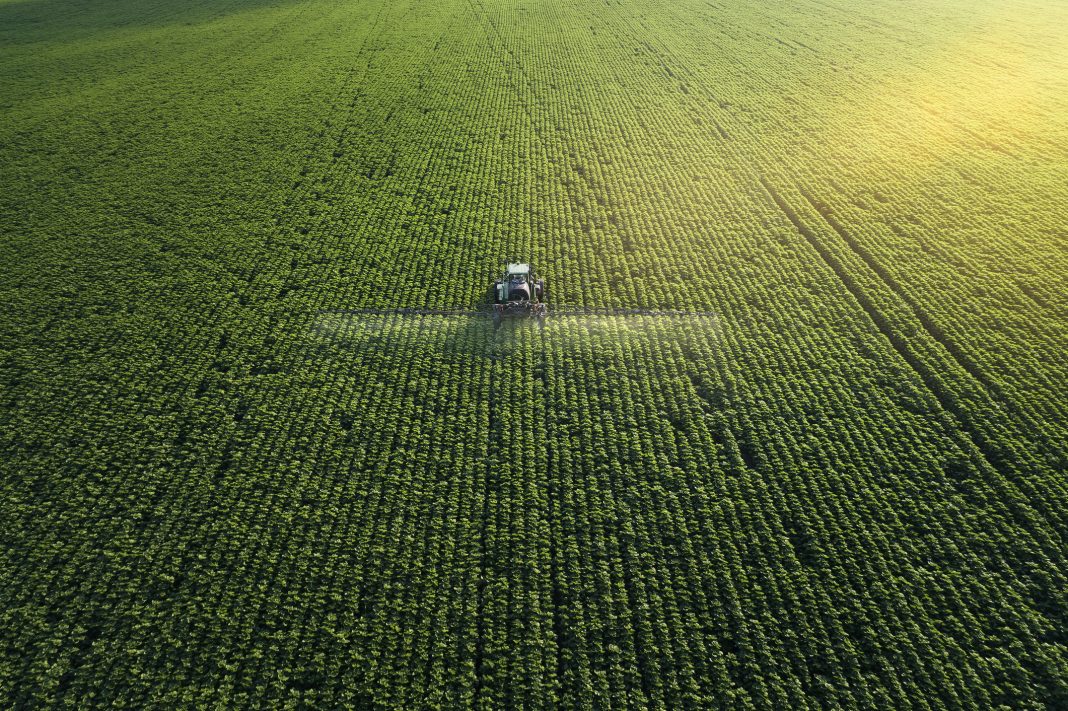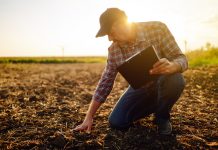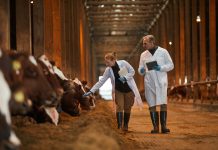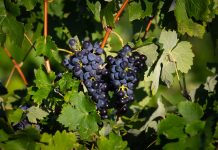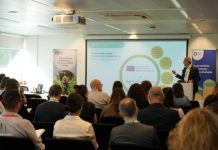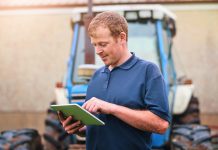The new digital farming tool ‘Global Field ID’ maps field boundaries with technology and assigns unique IDs to each plot of land, with the potential to track changes in food systems
‘We’re currently experiencing supply chain issues. It’s become a common sight in supermarkets these days. The vegetable shortage that has been emptying the shelves of supermarkets paints a stark picture of the current issues that are hampering fresh food production. Could this be a sign of more disruptions to the food systems to come?
According to the Farmer’s Union, the UK has now ‘hit a tipping point’ and needs to ‘take command of the food produced’ amid ‘volatility around the world’ caused by the war in Ukraine and the climate crisis.
Throughout the UK (and the rest of the world), farmers are under mounting pressure to use their increasingly scarce resources in the most efficient way, in order to improve productivity while mitigating costs and reporting on the environmental impact of their activity.
Varda, Yara and Syngenta have formed a new partnership to help tackle this issue, aiming to standardise how farm and field data is identified across the agriculture & food industry to make data exchange and reporting easier for farmers and their surrounding supply chain ‘ecosystem’.
Farmers are under increasing pressure to use their scarce resources
Traditionally, digital farming tools have used varying formats to identify agricultural fields, limiting interoperability and making compliance with requests for transparency a time-consuming and costly activity. One of the key benefits Varda expects from the widespread adoption of its service is to reduce the burden of data collection and exchange, allowing farmers to extract even more value from precision farming tools and spend less time on data entry, which in turn should drive productivity and alleviate the burden of reporting.
Global Field ID maps field boundaries through earth observation technology and assigns unique IDs to each plot of land
Varda’s innovative Global FieldID™ system maps field boundaries through earth observation technology and assigns unique IDs to each plot of land. The IDs can be queried through a unified API (Application Programming Interface) service that will gradually connect with the most relevant farm management information systems and other farmers’ service providers and customers, with the ultimate goal of creating a ‘common geospatial language’ for the agri-food sector. Both Syngenta and Yara recognise the importance of creating such a common language for every field to achieve more sustainable, resilient, and transparent food systems.
Digitising the farming sector: What will this partnership mean?
Global Field ID™ (GFID) is turning agricultural land into ‘digitally compatible entities’ to reduce data fragmentation across the food supply chain. Just like barcodes for food items have revolutionised the industry and simplified reporting, so the introduction of GFID can provide many advantages to farmers: spending less time in menial data entry activities, increasing the value derived by recommendation tools, and ultimately making their efforts in regenerative and sustainable farming practices more visible throughout the supply chain.
It is important to note that the GFID system is not invasive: the additional IDs sit alongside companies’ own digital farming tools, not requiring any substantial modification to their historical data management practices. Even more importantly, farmers’ data will remain safely guarded in the systems that they have been using and that they trust: only when farmers wish to exchange or communicate their private field data, they will be allowed to use GFID as an additional reference, acting like a ‘bridge’ between otherwise disconnected tools and stakeholders.
The benefits of increased connectivity and simpler data integration
For Farmers, increasing connectivity and simpler data integration means having a gateway for accessing advanced data insights and achieving cross-supply chain connectivity. But this raises an underlying point for this to work to its optimum – and that’s the process of achieving widespread adoption. The greater the network, the more the benefits can be felt and realised.
Global Field ID™ can also be used to increase transparency around regenerative agriculture practices: the widespread uptake of GFID among entities that promote such practices can substantially reduce the risks of double-counting of land-based carbon sequestration or biodiversity improvement claims. This strengthens the credibility and trust in land-focused climate finance and can support existing verification protocols.
Finally, by assigning a shared identifier to each field, the technology also enhances traceability. This will mean that – over time – it will be easier to create an undisturbed chain between agricultural input, field practices and crop supply chains.
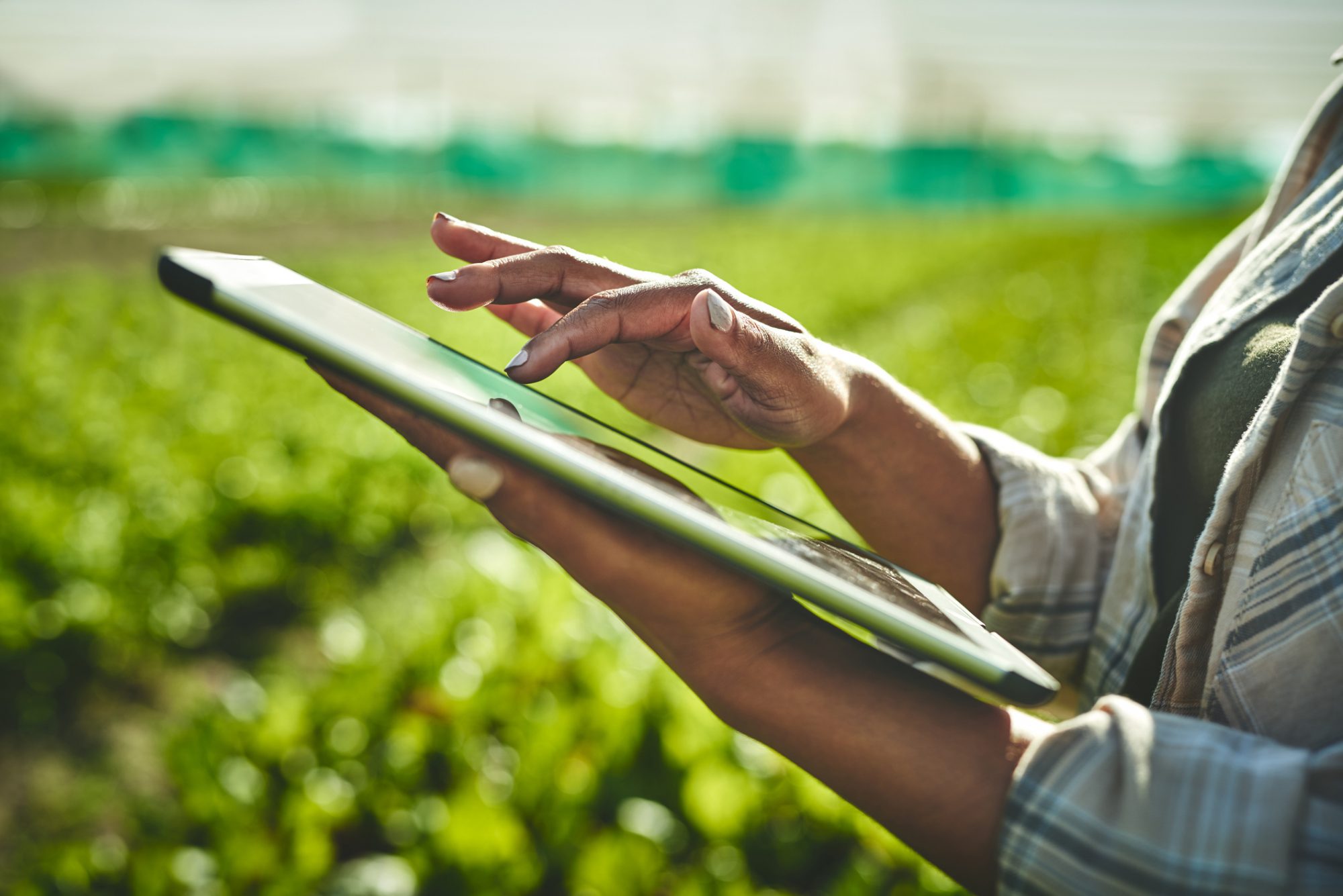
A new industry standard for precision agriculture?
Data silos and separate operations in different fields make achieving coherent and efficient food supply chains more difficult. There is a need to break down these silos. Making information sharing easier and simpler, time spent on information aggregation can be slashed, and the spreading of precision agriculture and mobilisation of climate finance can be expanded even further.
Advancing a much-needed evolution in our food systems
What is necessary is to establish Global Field ID as a de facto industry standard, advancing a much-needed evolution in our food systems, similar to what has happened in other industries with data standardisation. For this reason, Varda is engaging with multiple companies from the agriculture & food industry to expand the network of connected tools. If industry players take the lead in implementing this innovation, we have the opportunity to add an important step in the transformation of the food ecosystem.
Sowing the seeds of a stronger food system
Whilst currently shorter-term, the early signs of food shortages hint at deeper problems. Our food system is cracking under mounting pressure from the climate emergency, exposing the potential for more extreme humanitarian crises to come. It is up to us to band together to overcome this crisis while simultaneously protecting biodiversity, nature, the climate and people’s livelihoods.
The industry and its leaders need to join forces. Collaboration is the glue that will paper over the cracks and form a new, sustainable process of producing and supplying food. The sowing of Global FieldID™ could be the seed for growing this new era of farming and agriculture.
This piece was written and provided by Davide Ceper, CEO of Varda

